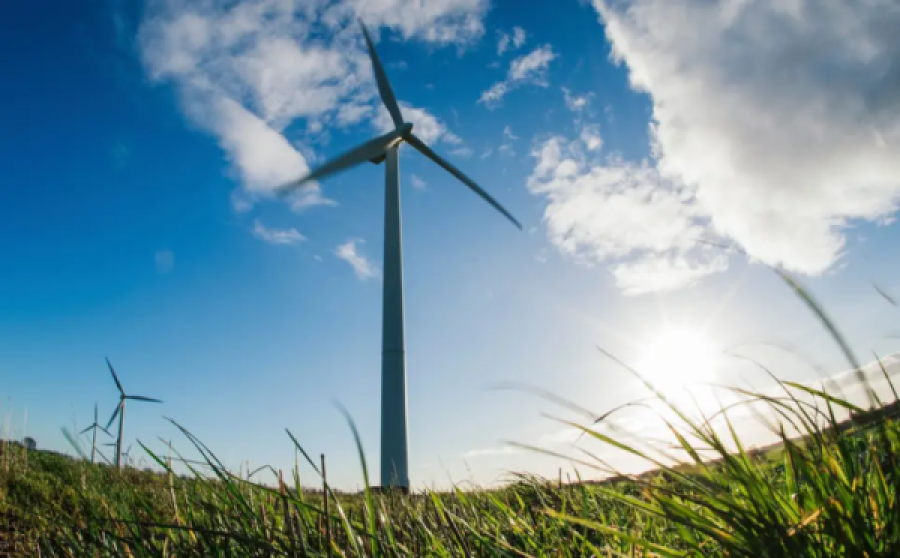March, 2020
In a world that continues to be largely fueled by carbon-based energy, what does fossil fuel free investing really mean? For Terra Alpha, it means being transparent with our investors about the companies in our portfolio and about our long-term investment strategy, which is grounded on environmental science.
Since the founding of Terra Alpha and the launch of our first fund in 2015, we have never invested in a business built around selling, refining, or marketing fossil fuels (oil, gas, coal, and tar sands). Not only have we not invested in fossil fuel companies, we actively research and invest in companies across the economy that are best positioned for the transition to a sustainable economy, which must increasingly operate without fossil fuels. (Please see our report, Emitting Money: Why Carbon Efficiency Matters to Businesses and Investors, December 2016, available on our Resources page.)
Our firm’s investment philosophy and process incorporate leading science-based environmental forecasts and models to inform our understanding of the ways in which the global economy must evolve if we are to create a truly sustainable system. A central part of those models is a significant and rapid reduction in the use of fossil fuels. This is due to the scientific determination that in order to limit the impacts of climate change, we must reduce human-made GHG emissions by at least 80% by 2050. This in turn requires a dramatic and rapid reduction in the use of carbon-based fuels (coal, tar sands, oil, and natural gas) across our global economy.
In other words, in a sustainable, decarbonized economy, the long-term investment case for fossil fuel companies is simply unattractive. Fossil fuel companies’ revenues and profits are dependent on producing a commodity product that has a very poor demand outlook. Analysis also shows that most publicly-traded traditional energy companies carry a high risk that they will need to write-off meaningful parts of their oil and gas reserves as “stranded assets”.
In the two economic sectors that use the highest amounts of fossil fuels (electricity generation and transportation), alternative, cost-competitive technologies have emerged in recent years. In the electric generation market, solar and wind (onshore and offshore) installations are now more cost competitive than coal, gas, and large-scale nuclear power, in most circumstances. Continued cost reductions are driving the growth of energy storage capacity, which can address both peak and intermittent electricity demand issues. In the transportation market, the growing number of electric vehicles (EVs) in the passenger, light truck, and bus markets are providing alternatives to internal combustion engine (ICE) vehicles. In all markets, investments in improved energy efficiency and energy demand reduction technologies continue to deliver positive net returns.
Note: While the recent decline in oil prices will slow the near-term rate of fossil fuel demand destruction, it does not alter the environmental nor long-term economic case for decarbonization.
Terra Alpha’s own Environmental Productivity (EP) analytical framework begins with assessing the carbon intensity (GHG emissions/unit of revenues) of each company’s operations and energy purchases in comparison to its industry peers. Only those with “best-in-class” performance metrics move forward in our research process. Every company also goes through a test for high levels of economically stranded assets, clearly a common problem for oil and gas companies, but frequently dampening the outlook for other sectors including banks, real estate, automotive manufacturers, and electric and gas utilities.
Our deeper EP Ratings analysis takes a thorough look at a company to learn about its commitments and strategies for reducing emissions from its own operations, its supply chains, and what is embedded in its products and services. Our Enduring Business Model (EBM) scoring assesses the company’s ability to thrive in our rapidly changing world — a world that will see increasing impacts from climate change and a world that must decarbonize, amongst other long-term trends.
The end result of our investment process, which was designed to assess both a company’s Environmental Productivity and Enduring Business Model, is a portfolio that invests beyond fossil fuels. We don’t invest in companies whose business is producing, refining, or marketing carbon-based fuels (coal, tar sands, oil, or gas). We do invest in companies that are already moving to significantly reduce their own use of fossil fuels and/or are enabling the transition to a fossil fuel free economy. We see this as simply a smarter way to invest for the future.
Note: 39 of the 67 companies in Terra Alpha’s global diversified strategy’s current portfolio have made commitments to science based targets regarding their own carbon emissions reduction plans. We continue to work to encourage all companies to make similar commitments. Our portfolio’s carbon footprint is 89% lower than a standard global index fund’s footprint based on reported emissions data.

